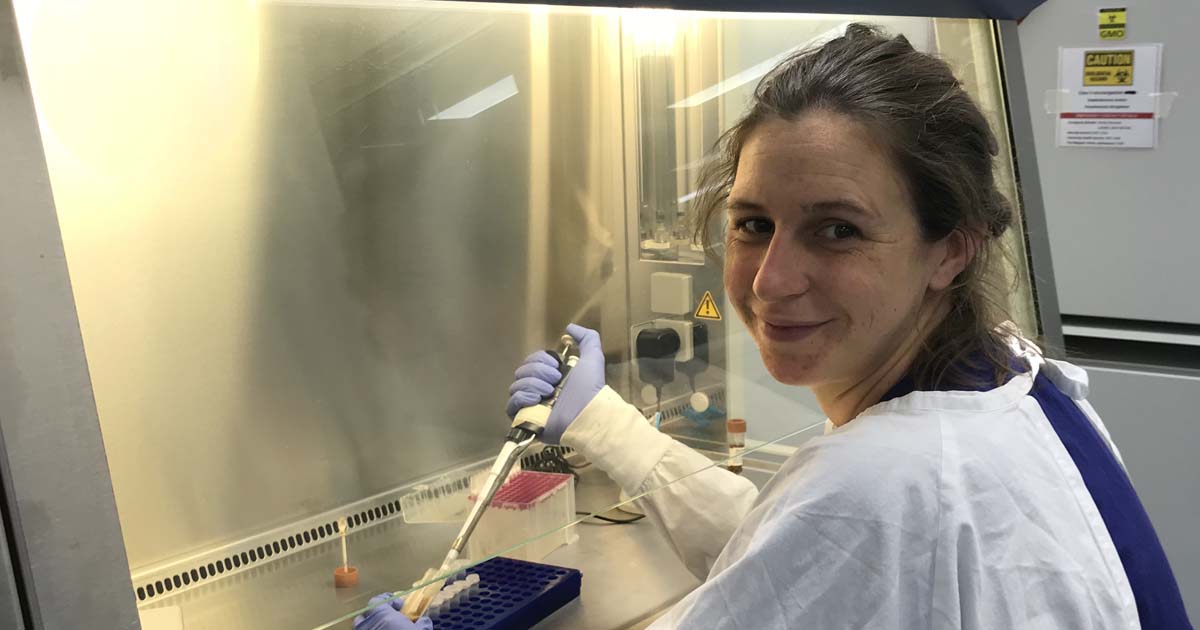The Woolcock Institute of Medical Research

Lung cancer and the microbiome: harnessing the potential of our 'native' bacteria
November is Lung Cancer Awareness Month. Anna McLean, a PhD student at the Woolcock, talks about her research, which she hopes will lead to better diagnosis and treatment for people with lung cancer.
Lung Cancer Awareness Month is an incredibly important month, as lung cancer is the most common cause of cancer-related death in Australia, with an average five-year survival rate of just 20 percent.
My research focuses on the lung microbiome and how it can be used to complement current tools to improve the diagnosis and treatment of lung cancer.
The microbiome in health and disease
The human body is home to a complex community of both symbiotic ('good') and pathogenic ('bad') microorganisms, collectively called the microbiome.
The microbiome is increasingly understood to have a crucial function in human health through its role in immune function, inflammation and metabolism.
Our modern lifestyle – in particular our diet and our increasing use of broad-spectrum antibiotics – have led to detrimental changes to the finely-balanced communities of the microbiome. The disturbance of the microbiome, known as 'dysbiosis', has now been implicated in a wide range of health issues, from obesity and diabetes to autoimmune diseases and cancer.
The gut microbiome has been shown to predict how a person will respond to immunotherapy, a type of treatment that uses a person's immune system to fight cancer. And there is hope that modifying the gut microbiome – through stool transplantation or probiotics for example – may be a way to optimise treatment outcomes in people for whom immunotherapy does not work well.
The microbiome in lung cancer
To date, most research has focused on the microbial communities within the gut, as they are by far the densest bacterial populations. Many other sites, including the lungs, were thought to be sterile.
However, recent discoveries show that the lungs are also home to their own dynamic bacterial population, with an equally important role in regulating immune function and inflammation.
What's more, the microbiome of people with lung cancer differs significantly from people who don't have lung cancer. The presence of certain bacteria can even predict those more likely to develop lung cancer, as well as those in whom lung cancer is more likely to recur following treatment.
My research
In my research I'll focus on three areas:
- People with advanced lung cancer who are undergoing chemotherapy or immunotherapy. In these patients, we are collecting airway samples prior to treatment to see if the lung microbiome can predict treatment response.
- People with early lung cancer who are undergoing surgery. For these people, we are collecting airway samples to investigate the role of the microbiome in predicting those who have early disease recurrence.
- Finally, we are exploring the pleural microbiome, a very novel area of research. The pleura is a two-layer membrane that covers the lungs and lines the chest cavity. Pleural fluid sits between those two layers. We're investigating whether the microbial community within pleural fluid can be used to differentiate between metastatic malignancy, mesothelioma or non-malignant conditions.
What I hope to achieve
The microbiome is a relatively new and rapidly progressing area of research. It is my hope that further research will lead to the development of simple tests of the microbiome that can improve diagnosis and personalise treatment so we can improve outcomes for people with lung cancer.
About Anna
Dr Anna McLean is a PhD student in the Woolcock's Centre for Lung Cancer Research. She is also a respiratory physician at Royal Prince Alfred Hospital, where she is interested in diagnostic procedures and lung cancer screening as well as improving indigenous lung health.










